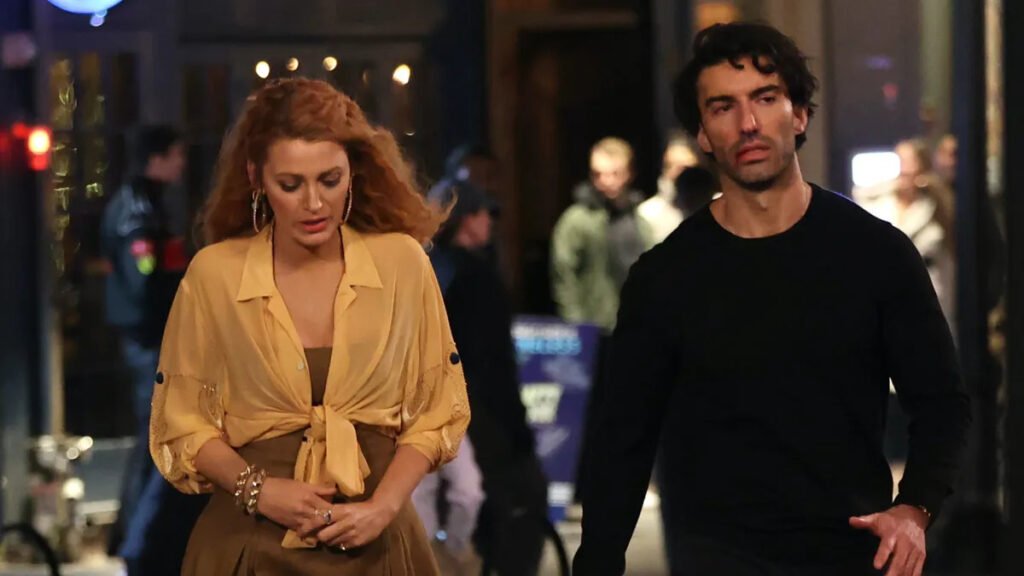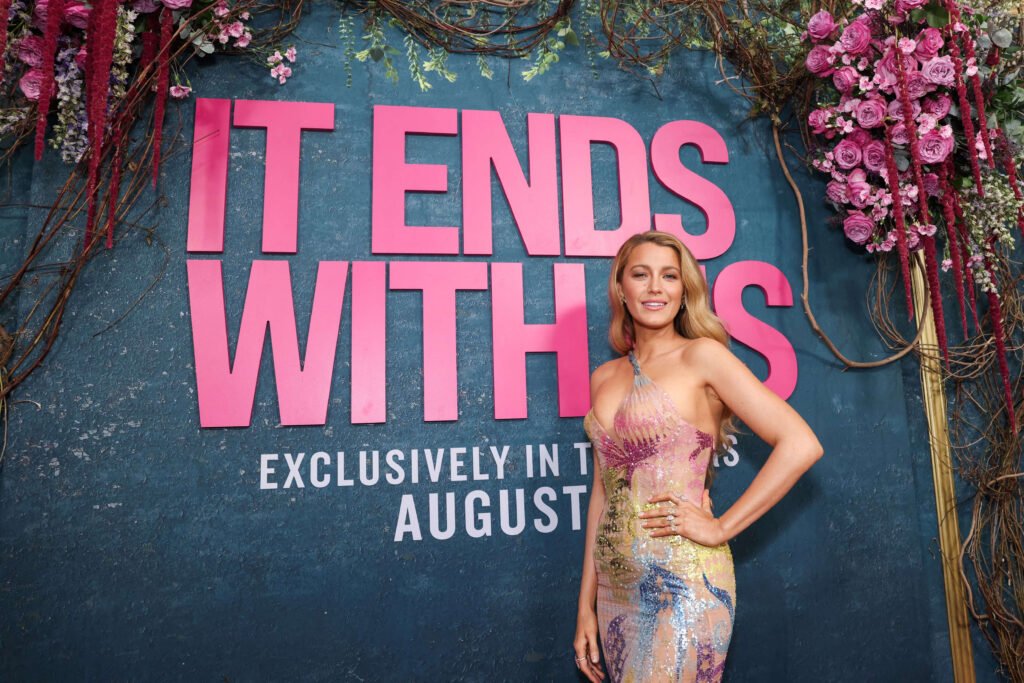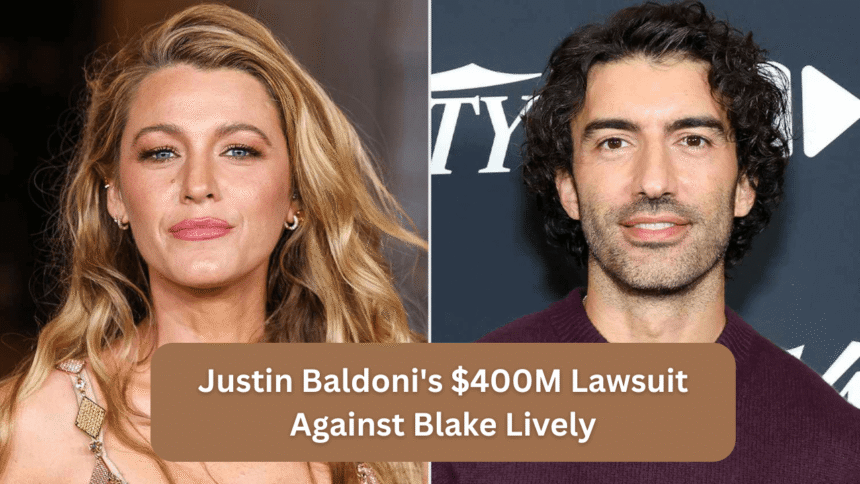A federal judge has delivered a significant legal victory to actress Blake Lively, dismissing Justin Baldoni’s $400M Lawsuit against her, her husband Ryan Reynolds, and a major news publication. This crucial decision substantially resolves a heated dispute stemming from the production of their film “It Ends With Us.” Justin Baldoni’s $400M Lawsuit, which accused the prominent Hollywood couple and the publication of defamation and extortion, ended its pursuit of massive damages in a New York courtroom on Monday. The ruling marks a pivotal moment in the public saga, bringing a decisive conclusion to Justin Baldoni’s $400M Lawsuit regarding these particular claims.
The Origin of the Conflict
The legal dispute between Justin Baldoni and Blake Lively began with their professional relationship on the 2024 film adaptation of “It Ends With Us.” Lively initiated the legal proceedings in December. She filed a civil rights complaint, accusing Baldoni of sexual harassment. Her complaint detailed a hostile work environment on set. She cited inappropriate comments and violations of personal boundaries.

Lively also stated Baldoni improvised kissing scenes and often failed to provide an intimacy coordinator. These allegations quickly ignited a wider conversation about workplace safety within the entertainment industry.Baldoni strongly denied Lively’s accusations. He responded with a substantial countersuit, seeking $400 million in damages. This countersuit contained allegations of defamation, extortion, and interference with contractual relationships.
Baldoni claimed Lively, her husband Ryan Reynolds, and their publicist, Leslie Sloane, tried to destroy his reputation. He further filed a separate $250 million defamation lawsuit against the publication. Baldoni asserted the newspaper had misrepresented facts and deliberately published a misleading narrative. He claimed the publication used “cherry-picked” communications to portray him negatively. These legal filings exposed a deeply antagonistic professional relationship between the two stars.
Judge Liman’s Definitive Ruling
U.S. District Court Judge Lewis J. Liman presided over the case. He issued a comprehensive ruling, dismissing Baldoni’s sweeping claims. The judge affirmed that Lively’s original allegations, submitted within a civil rights complaint, possessed legal protection. This “litigation privilege” shields statements made in judicial proceedings from defamation claims. Judge Liman consequently found Baldoni could not sue Lively over these specific allegations.
The judge then addressed Baldoni’s claims against Ryan Reynolds, Leslie Sloane, and the news publication. Baldoni had alleged their participation in a coordinated smear campaign. Judge Liman’s ruling stated that Baldoni had not adequately demonstrated “actual malice.” This legal standard requires proving that Reynolds, Sloane, or the newspaper knew their statements were false or acted with reckless disregard for the truth.
The court determined Reynolds merely echoed his wife’s account. Sloane’s statements also relied on Lively’s established narrative. The judge explicitly noted the publication simply reported on the official legal proceedings. He stated the newspaper had no “obvious motive” to favor Lively’s version of events. This emphasizes the significant protection afforded to journalistic reporting on public legal matters.
Judge Liman also dismissed Baldoni’s contention that Lively had “stolen creative control” of the film. He concluded her alleged threats to refuse promotion did not meet the definition of extortion under California law. The judge observed that Wayfarer, Baldoni’s production company, failed to prove Lively held an obligation to promote the film or approve its marketing materials. This aspect of the ruling clarifies the contractual boundaries regarding creative control and promotional duties in film agreements.
Blake Lively’s Public Response
Following the court’s definitive dismissal, Blake Lively issued a powerful statement. She publicly expressed “love and gratitude” for the individuals who supported her throughout the challenging period. She utilized social media to underscore her unwavering commitment to women’s rights. Lively shared her personal experience, stating she felt “the pain of a retaliatory lawsuit, including the manufactured shame that tries to break us.” She also acknowledged that numerous individuals lack the necessary resources to defend themselves against such legal actions.

Lively reiterated her strong resolve to continue advocating for women’s voices. She spoke passionately about ensuring women’s safety, integrity, dignity, and personal narratives receive proper protection. She further highlighted various organizations that offer crucial support and resources for women confronting similar challenges. Her statement clearly conveyed the emotional toll the legal battle exerted.
It simultaneously transformed her personal ordeal into a broader platform for advocacy and social change. Her public response resonated widely, significantly amplifying the ongoing conversation about accountability in professional environments across industries.
Far-Reaching Implications for the Industry
The dismissal of Justin Baldoni’s $400M Lawsuit sends a powerful and unmistakable message throughout the entertainment industry. It strongly reinforces the legal protections extended to individuals who bravely come forward with harassment allegations. The court’s ruling suggests that legal complaints filed in good faith benefit from substantial shields against retaliatory defamation claims. This significant outcome could encourage more individuals to speak up without the fear of financially crippling countersuits.
Legal experts widely believe this decision establishes an important precedent. It solidifies the position of alleged victims in similar disputes. It also brings renewed scrutiny to the conduct of individuals and organizations attempting to silence accusers through aggressive legal tactics. The industry’s focus now shifts further towards actively fostering safer workplaces and implementing more transparent procedures for handling harassment claims. This high-profile case clearly illustrates the complex challenges involved in managing public image and navigating intense legal battles within the highly scrutinized world of celebrities.
You may also like: Halle Bailey’s Custody Conflict Intensifies Amid DDG’s Legal Filing
The Path Forward
While Judge Liman dismissed the vast majority of Baldoni’s claims, he did provide a narrow opportunity for amendment. Baldoni’s legal team has a deadline of June 23 to revise specific claims. These remaining claims relate to alleged interference with contracts and breach of implied covenant. This means certain aspects of the dispute could potentially continue, though on a significantly reduced scale.
Lively’s initial lawsuit against Baldoni and Wayfarer Studios still remains active on the court docket. A trial for those specific claims is presently scheduled for March 2026. Both parties will likely provide testimony during that proceeding. This indicates the entire legal saga may not reach its complete conclusion for some considerable time.
The “It Ends With Us” film, despite achieving box office success, continues to attract considerable attention due to this protracted legal and public battle. Its commercial performance, combined with these ongoing disputes, creates a complex and layered legacy for the entire production.

